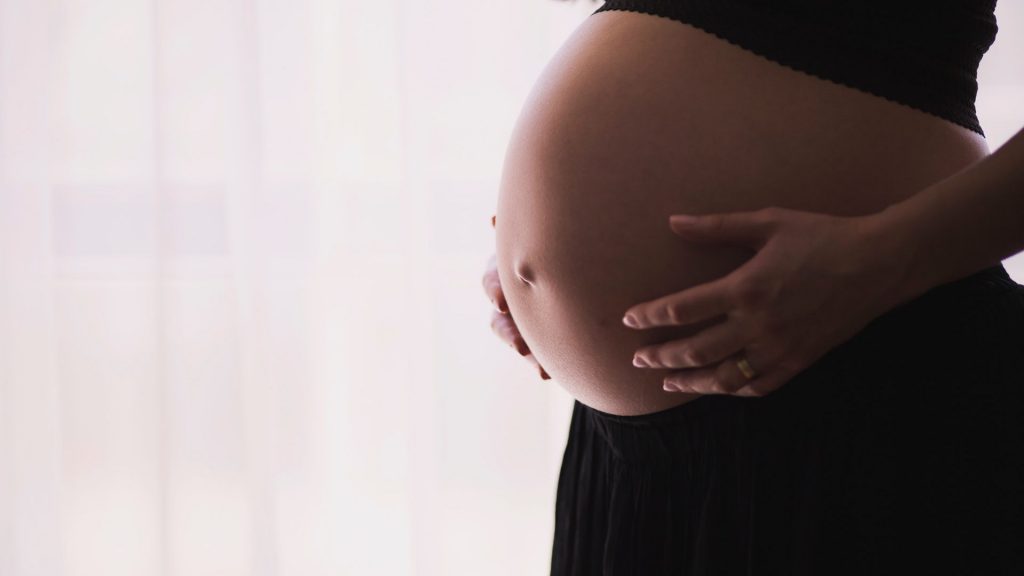Early Signs of Pregnancy
A missed period is the most well-known sign of pregnancy, but each woman will have her own symptoms. Even a missed period on its own does not always mean pregnancy. According to the National Institute of Child Health and Human Development (NICHD), irregular menstrual cycles can indicate the possibility of other conditions such as diabetes or eating disorders. If you begin to experience irregularities in your menstrual cycle, see your doctor immediately.
NICHD lists the following as early pregnancy symptoms:
- Slight Bleeding: According to the National Institutes of Health, 25 per cent of pregnant woman experience light bleeding six to twelve days after conception. This pregnancy bleeding will be lighter than menstrual blood.
- Tender and/or Swollen Breasts or Nipples: This sign usually occurs one to two weeks after conception.
- Fatigue: Due to a pregnancy hormone known as progesterone, pregnant women may experience fatigue. In addition to new hormones, the body will begin to pump more blood so the fetus can receive nutrients. Symptoms of fatigue can occur as early as one week after conception.
- Headaches: These can also be attributed to a flood of new hormones.
- Nausea/vomiting: Most well-known as ‘morning sickness’, nausea and vomiting can begin two to eight weeks after conception, but may persist throughout the pregnancy. Despite the name, ‘morning sickness’ can occur at any time.
- Food Cravings or Aversions: Someone’s most-beloved snack can prompt vomiting and an extreme aversion during pregnancy. New cravings and new favorite foods are just as common during this time.
- Mood Swings: Severe mood swings can be brought on by a flurry of new hormones and can be noticeable a few weeks after conception.
- Frequent Urination: Progesterone isn’t the only new hormone introduced to the body during pregnancy. Human chorionic gonadotropin is a hormone that increases blood flow toward the pelvis. This increased blood flow leads to more frequent trips to urinate.
If any of these symptoms persist and you think you may be pregnant, contact your doctor immediately.
Pregnancy Tests
Even before you go to the doctor, take an at-home pregnancy test if you suspect you are pregnant. According to Planned Parenthood, 99 out of 100 drugstore pregnancy tests are accurate. Pregnancy tests are easy to use. They work by testing urine for human chorionic gonadotropin (HCG), the same hormone that prompts frequent urination during pregnancy, produced by the body only under this circumstance. The most accurate read of whether or not you are pregnant is any time after a missed period, but it is recommended to wait at least three weeks after unprotected sex. If the at-home pregnancy test is positive, see your doctor.
How to Calculate Your Pregnancy Due Date
The body is unpredictable, but there are several sites online that offer pregnancy calculators. Yes, it takes nine months for a baby to come to full term, but a common mistake might be to plan nine months from when the pregnancy test was taken. If you consider the time it takes for symptoms to show up and the warning sign of a missed period, it is possible to be five weeks into the pregnancy at the time of the test. The menstrual cycle and ovulation period technically count as the first two weeks of pregnancy, which many people don’t realize when calculating their pregnancy due date. The 40 week term of pregnancy can vary depending on the length of your normal menstrual cycle. Using a pregnancy calculator removes most of the guesswork and math involved in determining the due date just by knowing the first day of your last period.
What to Avoid During Pregnancy?
Pregnancy can be a scary time for new mothers. You are not only looking out for your overall health but catering to a new life in the womb. A lot of information is available telling you what should and shouldn’t do during pregnancy, including new trends, but there are some tried-and-true rules. Unhealthy or dangerous lifestyle choices can lead to premature labor and birth defects. The Centers for Disease Control and Prevention (CDC) says to avoid the following substances and activities during pregnancy:
- Alcohol: Everything a woman consumes during pregnancy is passed to the baby through the blood in the umbilical cord. The CDC states that there is no safe amount of alcohol to consume during pregnancy.
- Smoking: The dangers of smoking during pregnancy are severe. It can lead to premature birth, stillbirth and sudden infant death syndrome (SIDS). The Surgeon General’s Report in 2014 confirmed smoking can cause orofacial clefts in babies. Results of smoking can occur in the very early stages in pregnancy, so it is advised to quit immediately.
- Chemical and Physical Agents: Chemical agents can harm pregnant women and have been tied to birth defects. Chemicals can be found in household cleaning products, so check labels and avoid solvents with glycol ethers, phenols, ammonia, chlorine or other toxic ingredients. Seek out natural cleansers as an alternative, such as baking soda.
- Air Pollutants: The United States Environmental Protection Agency (EPA) notes that air pollutants can endanger both mother and child and should be avoided. These include secondhand smoke, carbon monoxide, paint fumes and household cleaners. The EPA reports that exposure can lead to preterm delivery and low birth weight.
Avoid Getting the Nursery Painted
Preparing for the arrival of a new baby often involves painting the new nursery. The EPA believes paint fumes can lead to health issues for mother and baby.
It is believed the toxicity of the paint depends on the chemicals in it. While it is speculated that household paints have a low level of exposure, it is advised to minimize the risk by letting someone else paint the nursery, and keeping the house adequately ventilated.
Do not Overdose on Caffeine
Studies are conflicting when it comes to drinking caffeine during pregnancy. According to the American Pregnancy Association (APA), caffeine should be avoided during the first trimester as to lower the risk of a miscarriage. If you do decide to drink caffeine in your later trimesters, the APA recommends you stay under 200mg day. Caffeine is both a diuretic and a stimulant. This means that consuming a few cups of caffeine a day can increase your heart rate, blood pressure, visits to the restroom, and decrease water and calcium in the body. Water, juice and milk are the most essential fluids to consume during pregnancy, so keep a healthy balance.
Avoid Eating These Foods
During pregnancy, diet plays a pivotal role in ensuring your health and that of your baby. Eating a balanced diet is very important, but some foods should be avoided because of possible bacteria, viruses and parasites. The US Department of Health and Human Services lists the following as substances to avoid:
- Meat: Avoid eating poultry and beef that has not been cooked properly. Such meat can be contaminated with bacteria. Deli meat can be contaminated with listeria. This bacteria can reach the placenta and affect the baby. In some conditions, the reaction can be life-threatening.
- Fish with a High Percentage of Mercury: Tilefish, king mackerel, shark and swordfish have a high percentage of mercury. Tuna has a mild presence of mercury and it is advised to eat it sparingly. Toxins such as mercury can be harmful to a baby.
- Raw Eggs: Do not consume food items containing raw eggs such as mayonnaise, Hollandaise sauce and some custards. Raw eggs pose the threat of salmonella.
- Soft Cheese: Imported soft cheese such as Brie, Roquefort, Camembert, Gorgonzola and feta may have listeria or E.coli. Only eat cheese that is made using pasteurized milk.
- Raw Cookie Dough: Can contain salmonella. Don’t even risk licking the spoon after baking.
- Undercooked Fish/Sushi: Only eat fish that has been cooked to at least 145ºF; otherwise, it might contain parasites or bacteria.
- Unpasteurized Juice or Milk: These drinks may contain E.coli, campylobacter, listeria or salmonella. Drink pasteurized beverages to eliminate the risk.
- Raw Sprouts: Alfalfa, clover, mung bean or radish can all contain E.coli or salmonella, so cook thoroughly.
- Store-made Salads: Store-bought ham salad, chicken salad or seafood salad can contain listeria, so make these at home.
Avoid Medications
According to the CDC fewer than 10 per cent of US Food and Drug Administration (FDA)-approved medications since 1980 have enough information to determine possible birth risks. Consult a medical professional before taking supplements and over-the-counter medicine. Let your doctor know of pre-existing conditions that require you to take medication, so your specialist can work to help you and your baby stay healthy. One supplement approved by the CDC is folic acid, a B vitamin that if taken regularly can prevent major birth defects. The CDC-prescribed dose is 400mcg daily before and during pregnancy. Talk to your doctor first about taking folic acid.








